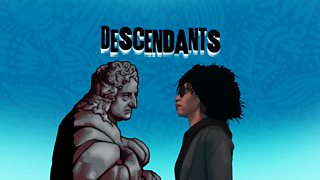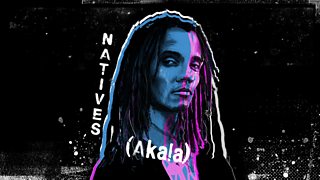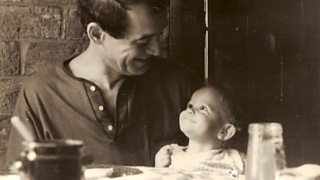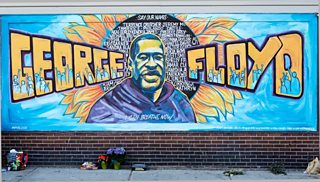The woman who took on big companies with links to slavery
How close is each of our lives to the legacy of Britain's role in slavery? And who does that mean we are connected to? Descendants, a Radio 4 podcast narrated by poet and writer Yrsa Daley-Ward, tells the stories of those whose lives today are joined through this history and its legacy.
For one such descendant, Deadria Farmer-Paellmann, discovering that her ancestors were trafficked to South Carolina launched a life's mission – to seek reparations for the descendants of the enslaved. And it all began in a burial ground…
“I really wanted to know who I was”
Deadria Farmer-Paellmann grew up in Brooklyn, never knowing where in Africa her family were from. She found the term African-American troubling: Africa is a whole continent, with many countries and people within it. “I really wanted to know who I was,” she says.
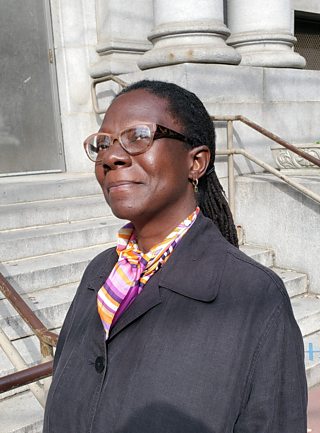
Witnessing the remains in the burial ground caused Deadria to wonder, were reparations for the damage done to the community still possible?
Then suddenly, thanks to DNA testing, descendants of the enslaved in America were able to learn about their lineage. Deadria traced herself to the Mende tribe of Sierra Leone. “Now that I know I’m Mende, I know a direction to look in to learn language, to learn culture, to travel, to get to know who I am,” she says.
“We were never intended to be returned”
With this discovery about her forebears came the difficult knowledge that, along with thousands of other Mende people, her ancestors were enslaved and trafficked to America. As skilled labourers, many were targeted by the British in the 1700s to work – without compensation – on their rice plantations in South Carolina.
“We were never intended to be returned or to be able to connect with whomever it is that we are, wherever we’re coming from,” says Deadria. “It was deliberate destruction of our nationality.”
“My journey started in an African burial ground”
Deadria became fascinated by trying to learn more about her Mende ancestry. In the 1990s, while working as a press officer, one assignment would change the course of her life forever.
She was asked to visit a burial ground that had become exposed in Lower Manhattan – the resting place of around 20,000 formerly enslaved Africans. Because there had never been a building on the site, the bones had remained intact. One set of remains stood out. “There was one skeleton where the mouth was wide open and it looked like the person was screaming,” recalls Deadria. “It was very moving.”
But what was so significant to her was the location, a stone’s throw from Wall Street. In that moment she connected the experience of her ancestors to the foundations of the financial sector. “They were the original stock. Where they were traded was just blocks away.”
“I made a decision. I applied to law school”
In 1865, when emancipation came to America, it was ordered that when the civil war ended the formerly enslaved would receive 40 acres and a mule. But President Johnson reversed the order, and most people got nothing. Witnessing the remains in the burial ground caused Deadria to wonder, were reparations for the damage done to the community still possible?
“I made a decision,” she says. “I applied to law school and in my personal statement I said that I would build the case for reparations. That was my goal, and it was inspired by that burial ground.”
She began to compile evidence to demonstrate how companies, which still exist to this day, may have played a role in enslaving her ancestors – and gained immense wealth in the process. “The challenge was to be believed, for the media to pay attention, for the world to pay attention, to find lawyers who would even take the case on,” says Deadria.
It took years but finally, on 24th March 2002, 137 years after the abolition of slavery in the USA, the lawsuits were filed. “Filing it, it was just a wonderful feeling,” she recalls.
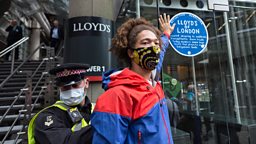
Focusing on the companies has done a lot to popularise the struggle for reparations. It鈥檚 not something that鈥檚 intangible anymore.Deadria Farmer-Paellmann
“David and Goliath”
At first, they charged three American companies with crimes against humanity and consumer fraud. They wanted to show that these companies had not been transparent about their role in slavery and to pay into a trust fund that would benefit all heirs of enslaved Africans. “The companies took it seriously,” Deadria says. “The defendants would have 24 attorneys in the courtroom at a time, and we had a team of maybe six. David and Goliath.”
It was the beginning of a series of cases that would last years. One company that the team turned their attention to was Lloyds of London, the insurance market. Documents showed that they played a role in financing the transatlantic slave trade voyages.
But in the end, the cases were dismissed. And although Deadria’s team won the right to appeal the consumer fraud part of the trial, they had run out of resources and weren’t able to pursue the litigation.
But the court cases had generated huge global press. “Focusing on the companies has done a lot to popularise the struggle for reparations,” says Deadria. “It’s not something that’s intangible anymore. These are names you see every day. They’re not dead tobacco farmers, dead cotton planters; these companies are still alive.”
“They all have a wonderful opportunity to do something wonderful”
Then on 18th June 2020, 10 days after the statue of slave trader Edward Colston was pulled down in Bristol, and 16 years after Deadria filed the court case, Lloyds of London apologised for their past links to the slave trade and announced they would make payments for their historic role in financing slavery. They would make investments to promote the welfare of black, Asian and ethnic minority groups.
“It was thrilling to hear Lloyds talk about wanting to do something,” says Deadria, who believes the litigation in 2002 is definitely making a difference with companies like Lloyds. The hope now is that more corporations will step up and do the same.
“They all have a wonderful opportunity to do something wonderful,” says Deadria. “It’s the past, you cannot undo it, but you can take on a positive attitude and say, ‘we see the harm that it’s caused and we’re going to be responsible for repairing.’”
Decades after that burial ground visit, Deadria has high hopes for the future. “I want to see slave descendants, the descendants of enslaved Africans, doing well all over the world. I just want to see our lives improved.”
To learn more, listen to Descendants: James Cleverly MP and Deadria Farmer-Paellmann
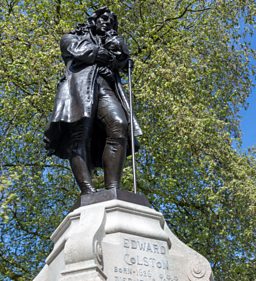
More from Radio 4
-
![]()
Descendants
Descendants looks into our lives and our pasts and asks how we are connected to slavery.
-
![]()
Natives: Race & Class in the Ruins of Empire by Akala
Charting the social, historical and political factors that have shaped the world we live in today.
-
![]()
Thinking In Colour
Gary Younge explores stories of racial passing, through the prism of Nella Larsen's book.
-
![]()
Is there a balm to heal the hurt and pain of racial injustice?
Reflections on one of the critical questions arising from the death of George Floyd.
